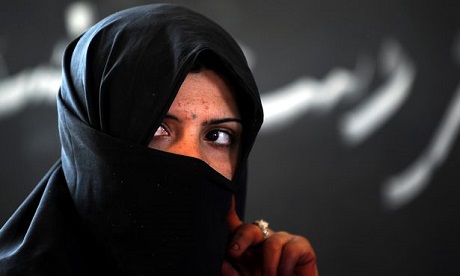The Netherlands’ police and and transport companies are unwilling to enforce a ban on wearing a face-covering burqa.
Their lack of cooperation with the so-called burqa ban made the new legislation largely unworkable on its first day in law.
Under the terms of the Partial Ban on Face-Covering Clothing Act, various forms of headgear are outlawed in public buildings including schools and hospitals and on public transport. There is no prohibition on wearing these items in the street, however.
Ski masks, full-face helmets, balaclavas, niqabs and burqas are all prohibited.
The trouble is, making a decree is one thing, enforcing it is entirely different – especially when the enforcers won’t play ball.
The law says people wearing banned clothing can either remove the offending item or, if they refuse, pay a police fine of between €150 and €415.
However, police say enforcing the ban is not a priority and are concerned that veiled women could be put off from entering a police station to make unrelated complaints if they first had to remove their face-coverings.
Furthermore, as the police aren’t prepared to back them up on enforcing the ban, transport companies say they won’t be asking staff to take on an enforcement role.
“The police have told us the ban is not a priority and that therefore they will not be able to respond inside the usual 30 minutes, if at all,” a transport network spokesman says.
“This means that if a person wearing a burqa or a niqab is challenged trying to use a service, our staff will have no police backup to adjudicate on what they should do. It is not up to transport workers to impose the law and hand out fines.”
Staff will advise women wearing face-covering clothing of the law but will allow entry.
A local newspaper has waded into the various views on the ban, suggesting people who “bothered” by the wearing of the prohibited clothing could make a citizen’s arrest. The national police tweeted their confirmation of this option.
One political party says it will pay niqab wearers’ fine and has opened an account where people can deposit money. An Algerian entrepreneur and activist also says he’ll cover the costs of fines.
Amsterdam’s mayor says the city’s authorities are expected to ignore the ban, which Amnesty International says is an infringement of women’s right to choose what they wear.
But in 2014 the European human rights court ruled such bans did not violate the European Human Rights Convention.
The Netherlands is the sixth EU country to enact face-covering legislation.
Source
- The Guardian
- Image: Mirror
